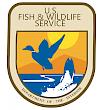Using evidence to make conservation work: Webinar
There is a revolution in the use of evidence with increasing demands for more effective practice from policy makers and funders and philanthropists. Artificial Intelligence is likely to transform this further.

Anyone interested in the use of evidence within programmes for conservation is invited to virtually join a webinar taking place in Cambridge, UK, on Tuesday 25th June 2024.
Jointly hosted by Cambridge Conservation Initiative, Conservation Evidence, TRAFFIC, and the U.S. Fish and Wildlife Service the webinar runs from 10:00 to 17:45.
The workshop will discuss the advantages and challenges of embedding evidence into conservation practice and discuss future opportunities.
About the Cambridge Conservation Initiative

The Cambridge Conservation Initiative (CCI) is a collaboration between ten leading biodiversity conservation organisations based in and around the city of Cambridge and the University of Cambridge.
By catalysing strategic partnerships between leaders in research, education, policy and practice CCI aims to transform the global understanding and conservation of biodiversity and, through this, secure a sustainable future for biodiversity and society.
The CCI partners are BirdLife International, British Trust for Ornithology (BTO), Cambridge Conservation Forum (CCF), IUCN, Fauna & Flora International (FFI), RSPB, TRAFFIC, Tropical Biology Association (TBA), UNEP-WCMC, Wildlife Conservation Society (WCS) and the University of Cambridge.
About US Fish and Wildlife Service

The U.S. Fish and Wildlife Service is a U.S. federal government agency within the U.S. Department of the Interior which oversees the conservation and management of fish, wildlife, plants and their habitats for the American people.
About Conservation Evidence

Conservation Evidence is a free, authoritative information resource designed to support decisions about how to maintain and restore global biodiversity.





